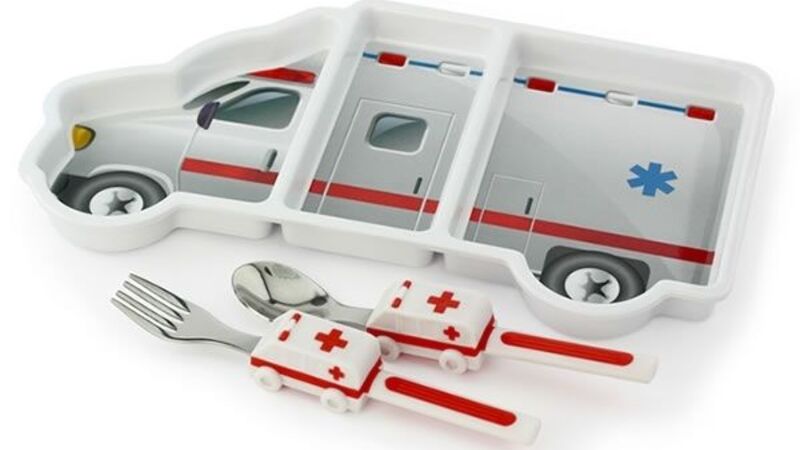Matt Green, a paramedic for an NHS Trust, blogs about a problem for every hungry, tired, hard-working paramedic - what comes first: the emergency call or the meal break?
Working as ambulance personnel has all the hallmarks of an exhausting job: long shifts day and night, repetitive heavy lifting and prolonged concentration to ensure a safe, professional and dignified approach to every patient and colleague.
Wherever you work for the emergency services, from the moment you consider applying, it’s obvious the work’s going to be physically, mentally and emotionally challenging as well as unpredictable. Clinicians often relish the excitement and reward this brings.
But no person can work indefinitely to a high standard, which is why breaks are not only important, but also humane. During breaks, which are generally unpaid, ambulance staff might be eating what may be their only warm food and drink of the day to stave off hunger and dehydration which impairs judgement, napping to ensure they can later safely drive a 4.5ton ambulance at 85 miles an hour to a dying patient or talking with colleagues about recent football results to block out the seething frustration at the obstructive bystander who swore at them earlier.
Whatever ambulance crew do on their break, it’s often things that contribute to good mental and physical health. Often. But not always; there are frequently emails to be answered, vehicles to be restocked and important conversations with managers and administrative staff required which eat into breaks but are undertaken out of necessity and the goodness of staffs’ heart. Performing these tasks at the start or end of a 12 hour shift is impractical as some issues can only be dealt with inside office hours.
Nonetheless, the provision of breaks are controversial and logistically difficult. It is common sense that tired ambulance staff can dangerously underperform, experience health problems and service-wide morale suffers, affecting strategic performance. Many of the meal break points have been explored in depth by employers, unions and professional bodies and there are no simple answers.
What times should breaks be? Where should breaks be taken and what facilities should be available? What is the knock-on effect of taking a break on the availability of emergency medical care in that area?
Crucially and emotively, is there ever an emergency so dire that ambulance staff should be expected to attend during a break (when they are arguably `not at work`) or does respect for `downtime` need to be absolute for a break to be worthwhile? It is almost impossible to reconcile a seasoned professional’s benchmark for this with the opinion of wider society. It is even harder for ambulance services to produce a meal break policy which is applicable in every circumstance, every day of the year given the number of mundane and life-and-death variables involved.
In extremis, no ambulance clinician would ever hope to finish their KitKat before attending a child with meningitis and would give their all if dispatched. However, if the next day there’s an interrupted meal break to a man with chest pain, the day after disruption for a breathless asthmatic and a disturbed meal break for unresponsive, intoxicated, 20 year old outside a nightclub on the following shift, the cumulative toll mounts up and the exceptional interruption to the break legislated for in the policy becomes a routine response to another `red call`.
Commonly, compensation structures are in place to financially offset a ruined meal break; this is a valued but materialistic sticking plaster over an issue that really can leave colleagues vulnerable to debilitating tiredness which can eventually contribute to debilitating mental and physical illness.
Unless demand for ambulances is reduced, or resource levels increase enormously, there are few easy solutions to ensure all ambulance crews are adequately rested during their 8-12 hour long shift, which may even then unavoidably overrun by several hours. Managers and control room staff will always wrestle with the daily respite needs of crews and the insatiable operational appetite for vehicles to attend emergencies within reasonable and clinically relevant timeframes.
Matt Green is a paramedic working for an NHS Trust. You can follow him on Twitter @MLG1611
